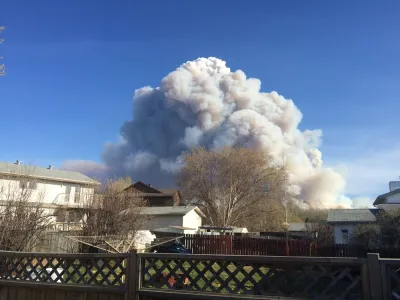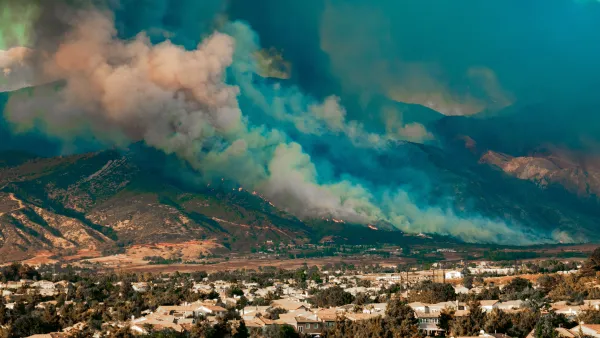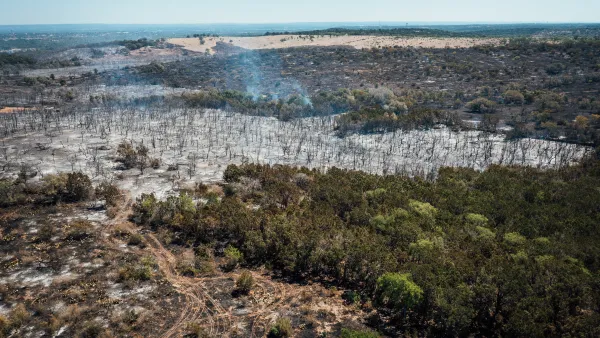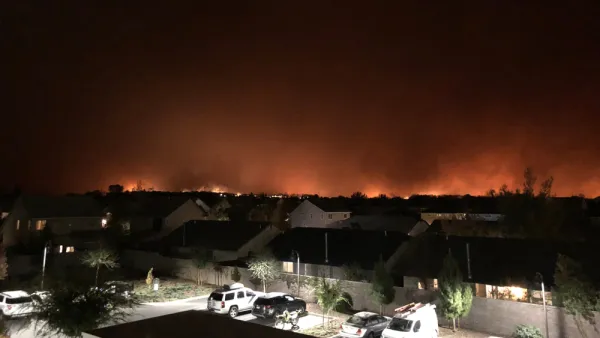Wildfires tend to start at the Wildland-Urban Interface: those border zones between cities and the open land surrounding them. Keeping the lid on sprawl, it can be argued, would tame the inferno.

As another summer of wildfires blazes on, it's hard not to notice the types of neighborhoods they regularly threaten. Adam Rogers writes, "The key to how we think about fire's severity [...] is not the number of fires, or even their magnitude, but where they are—and what's near them."
In fire-prone states like California, Texas, and Colorado, suburban sprawl often occupies the Wildland-Urban Interface (WUI) where wildfires often start. "Humans set most wildfires—95 percent of them, according to CalFire. That's a real problem when, as of 2004 in the continental US, the WUI was almost 278,000 square miles and contained 44.8 million housing units."
In a sense, the urban housing crisis exacerbates our risk from fire, and those affected are those priced out. "At a time when cities all over the country are experiencing housing crises, unable or unwilling to build enough units to accommodate growing populations, the greatest expansion of houses is on previously unbuilt spaces at the edges of cities."
FULL STORY: The West Is on Fire. Blame the Housing Crisis

Analysis: Cybertruck Fatality Rate Far Exceeds That of Ford Pinto
The Tesla Cybertruck was recalled seven times last year.

National Parks Layoffs Will Cause Communities to Lose Billions
Thousands of essential park workers were laid off this week, just before the busy spring break season.

Retro-silient?: America’s First “Eco-burb,” The Woodlands Turns 50
A master-planned community north of Houston offers lessons on green infrastructure and resilient design, but falls short of its founder’s lofty affordability and walkability goals.

Test News Post 1
This is a summary

Analysis: Cybertruck Fatality Rate Far Exceeds That of Ford Pinto
The Tesla Cybertruck was recalled seven times last year.

Test News Headline 46
Test for the image on the front page.
Urban Design for Planners 1: Software Tools
This six-course series explores essential urban design concepts using open source software and equips planners with the tools they need to participate fully in the urban design process.
Planning for Universal Design
Learn the tools for implementing Universal Design in planning regulations.
EMC Planning Group, Inc.
Planetizen
Planetizen
Mpact (formerly Rail~Volution)
Great Falls Development Authority, Inc.
HUDs Office of Policy Development and Research
NYU Wagner Graduate School of Public Service




























